

The CDC’s response to COVID was a disaster. Can Silicon Valley get it right?
source link: https://finance.yahoo.com/news/cdc-response-covid-disaster-silicon-100300136.html
Go to the source link to view the article. You can view the picture content, updated content and better typesetting reading experience. If the link is broken, please click the button below to view the snapshot at that time.
The CDC’s response to COVID was a disaster. Can Silicon Valley get it right?

Can Silicon Valley stop the next COVID?
Mariana Matus was working on a Ph.D. in sewage. A grad student at MIT, she was sifting through wastewater — from a building, a neighborhood, a city — for bits of viruses. The data could then be used to analyze the health of everyone who'd flushed. Pretty relevant information in 2020, right?
Matus thought so, too. Even before she had her degree, she went hunting for investors to turn the idea into a company. The pitch was that her team could help fight the COVID-19 pandemic by using wastewater surveillance, giving public health officials, or even you and me, a bottoms-down heads-up on whether people were sick.
The venture capitalists she approached were perplexed. Why was a student in public health — an academic, service-oriented discipline that strives to help people as a social good — asking Silicon Valley for money? "One of the key questions from investors was if we meant to create a nonprofit," Matus says. "They'd say: 'Are you sure? Did you mean to create a C-corp and a high-growth startup?' They didn't understand that there's this space of public health, that there are people whose job is to look at data and use it to create a program or intervention."
But that's exactly what Matus was pitching: a venture-backed startup explicitly aimed at responding to the next pandemic — and, in the process, delivering an impressive return on investment. "We are population health monitoring as a service," she says. "It's ongoing. There's a recurring, sustainable aspect to the revenue." In October 2021, Matus and her partner got $20 million in Series A funding to launch Biobot; today the company has 130 employees, a $125 million valuation, and a contract with the Centers for Disease Control and Prevention.
Broadly speaking, the US response to COVID-19 sucked — not the thankless, unceasing labor of first responders and healthcare workers, but the chaotic and often contradictory efforts of the nation's public-health machine. Even after decades of warning and preparation, over a million Americans died, businesses failed, and schools shut down. Everybody felt the hit in one way or another. If the past three years represent the best the government can do, then pandemic response is precisely the kind of activity that venture capitalists like to describe as "ripe for disruption."
 MarketWatch
MarketWatchFinancial-system risks put a smaller March rate hike by Federal Reserve back in play
Financial woes at Silicon Valley Bank are raising questions about whether a broader financial crisis may be in the works.
2d ago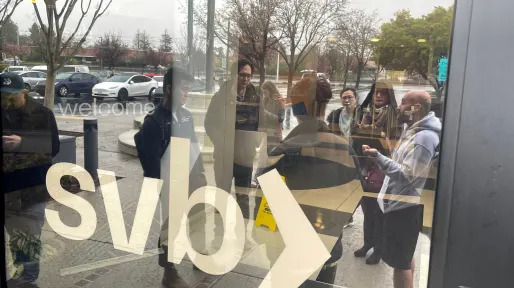 Fortune
FortuneA Silicon Valley Bank short seller explains how he knew the bank was in trouble months ago
“I've never seen a balance sheet crumble this quickly,” says Dale Wettlaufer, a partner at Bleecker Street Research who shorted the stock in January.
2d ago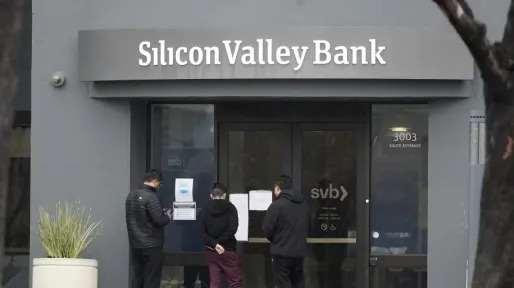 LA Times
LA TimesColumn: Silicon Valley Bank broke. Silicon Valley is broken
The failure of Silicon Valley Bank demonstrates the risk in showering unproven companies with cash and in handing so much power to venture capitalists to manage the process.
2h ago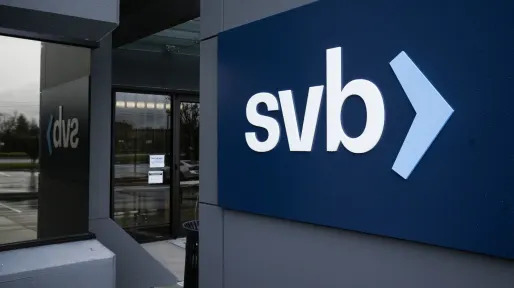 Bloomberg
BloombergSVB Draws Support From More Than 100 Venture Firms, Investors
(Bloomberg) -- More than 100 venture capital and investing firms have signed a statement supporting Silicon Valley Bank, part of mounting industry calls to limit the fallout of the bank’s collapse and avoid a possible “extinction-level event” for tech companies. Most Read from BloombergUS Discusses Fund to Backstop Deposits If More Banks FailSVB Fallout Spreads Around World From London to SingaporeStartup Bank Had a Startup Bank RunSVB’s 44-Hour Collapse Was Rooted in Treasury Bets During Pandem
14h ago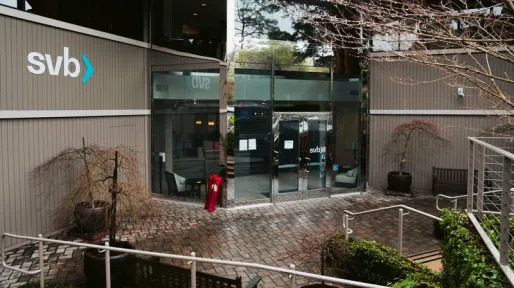 Reuters
ReutersTech execs race to save startups from 'extinction' after SVB collapse
Technology executives, prominent venture capitalists and founders including OpenAI CEO Sam Altman raced this weekend to keep alive companies caught up in the collapse of Silicon Valley Bank. Friday's dramatic failure of the bank, which focuses on tech startups, was the biggest since the 2008 financial crisis. Aiming to avoid what Garry Tan, the CEO of startup accelerator Y Combinator, called a potential "extinction level event" in the tech sector, industry executives moved quickly to do what they could to save small businesses.
7h ago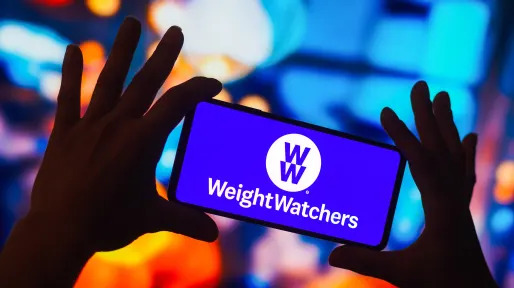 Yahoo Finance
Yahoo FinanceWeight Watchers CEO on diabetes drugs for weight loss: 'There's been a lot of misinformation and misuse'
Weight Watchers sees an opportunity to be a guide for chronic disease management in weight loss space.
1h ago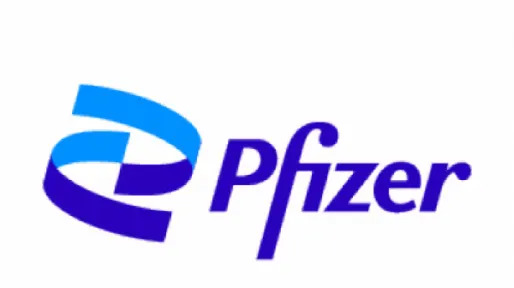 Benzinga
BenzingaFDA Approves Pfizer's Fast Acting Migraine Drug Acquired Via $11B Biohaven Acquisition
The FDA has approved Pfizer Inc (NYSE: PFE) acquired Biohaven's Zavzpret (zavegepant), the first and only calcitonin gene-related peptide (CGRP) receptor antagonist nasal spray for the acute treatment of migraine with or without aura in adults. In its pivotal Phase 3 study, Zavzpret was statistically superior to placebo on the co-primary endpoints of pain freedom and freedom from most bothersome symptoms at two hours post-dose. The pivotal study demonstrated pain relief as early as 15 minutes in
2d ago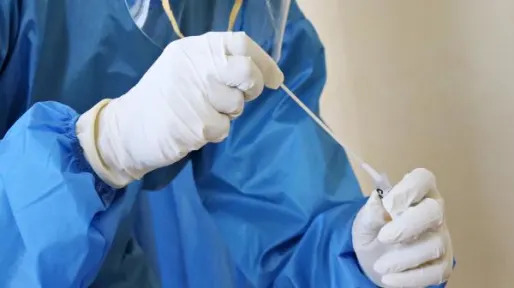 Benzinga
BenzingaFDA Addresses 'Misinformation' Concerning Delayed Approval Of Lucira Health's COVID-19 & Flu Home Test
The FDA provided additional information about the agency's interactions and decisions regarding the emergency use authorization (EUA) of Lucira Health Inc's (OTC: LHDXQ) COVID-19 & Flu Home test. The statement comes due to concerns about the agency's length and timing of the EUA clearance and its bankruptcy filing, which said the delay in EUA financially hit the company. In an investor report, Lucira blamed the FDA's "protracted" authorization process for its combination Covid and flu at-home te
2d ago Zacks
ZacksEsperion Therapeutics (ESPR) Down 24% in a Week: Here's Why
Shares of Esperion Therapeutics (ESPR) fell last week as the company's cardiovascular outcome CLEAR study results failed to meet investor expectations.
2d ago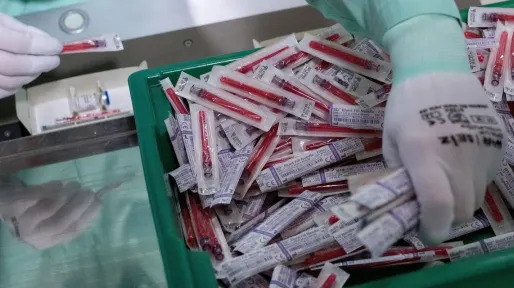 The Wall Street Journal
The Wall Street JournalRegeneron Borrows From Big Pharma Playbook to Keep Roche, Shorts at Bay
Leonard Schleifer, the longtime Regeneron boss, likes to point out that, unlike many giant drug companies gaming the healthcare system with all kinds of gimmicks, his biotech focuses on true innovation. Roche is indeed grabbing market share, reporting Vabysmo revenue of 591 million Swiss francs, equivalent to about $640 million, last year—an impressive figure for its first year on the market.
23h ago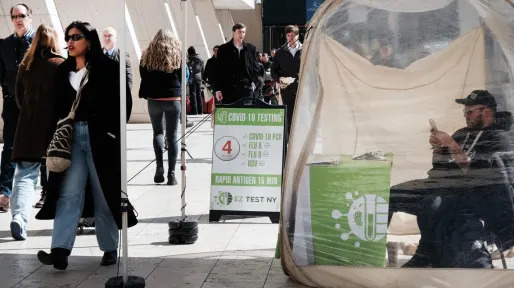 MarketWatch
MarketWatchLeading infectious-disease expert says COVID-19 is now endemic, but Americans are divided on whether pandemic is over
A leading infectious-disease expert said this week that data is showing the coronavirus has moved to the endemic phase.
2d ago Investor's Business Daily
Investor's Business DailyThe Cream Of The Crop: 5 Biotech Stocks That Outrank 91% Of All Stocks
The top five biotech stocks today have several commonalities: strong ratings. Some also show promising charts and are Tech Leaders.
2d ago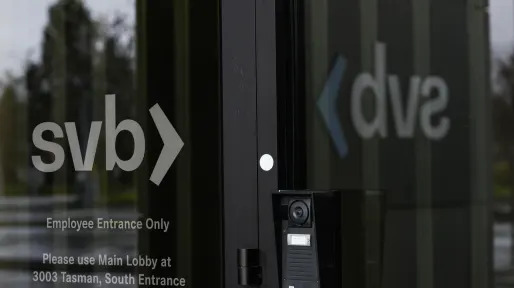 Bloomberg
BloombergKhosla Ventures Tells Some Startups Firm Will Cover Payroll
(Bloomberg) -- Khosla Ventures sent an email to founders saying that the venture capital firm would step in and cover payroll for some of its portfolio companies if they had shortfalls because of funds tied up with Silicon Valley Bank. Most Read from BloombergUS Discusses Fund to Backstop Deposits If More Banks FailSVB Fallout Spreads Around World From London to SingaporeStartup Bank Had a Startup Bank RunSVB’s 44-Hour Collapse Was Rooted in Treasury Bets During PandemicFDIC Races to Return Some
11h ago Fortune
FortuneThose trendy continuous glucose monitors? I’ve been wearing them for more than a decade. Here’s what I’ve learned
Food and exercise aren’t the only factors that impact your glucose levels.
1d ago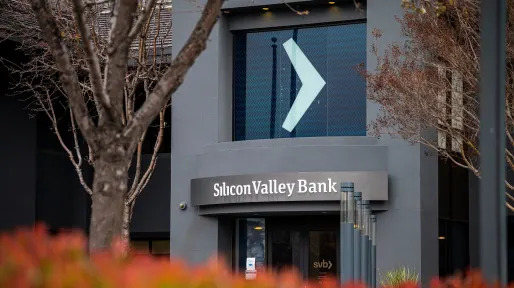 TechCrunch
TechCrunchOK, what is going on with SVB?
On Friday, I wrote about how Silicon Valley Bank has been closed by regulators, which are now in charge of the bank’s deposits. As Y Combinator CEO Garry Tan put it, this could set startups and innovation back by 10 years. After spending hours speaking to founders and venture capitalists about SVB, it's clear that explaining the bank’s state of business or strengths will not necessarily stop the panic we’re seeing. It’s panic that is seeping into volatility at other banks; even the ones positioned to benefit from SVB’s bust just hours earlier.
19h ago LA Times
LA TimesSilicon Valley Bank's collapse sparks mad scramble and fears of wider chaos
The failure of one of the tech industry's central institutions could leave countless companies unable to pay their employees in the coming weeks.
1d ago Fortune
FortunePedro Pascal’s apparently caffeine-laden Starbucks order is sending TikTok into a frenzy. But is it safe?
Each Starbucks espresso shot contains 75 milligrams of caffeine. Six shots would total 450 milligrams of caffeine—just slightly over the U.S. Food and Drug Administration’s recommended daily limit of 400 milligrams.
2d ago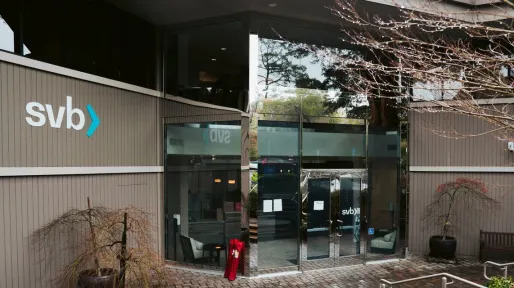 The Wall Street Journal
The Wall Street JournalInvestors, Startups Work to Find Cash Lifelines After Silicon Valley Bank Collapse
Venture funds are extending short-term loans amid a cash crunch. Meanwhile, some founders plan to use personal funds to cover payrolls.
10h ago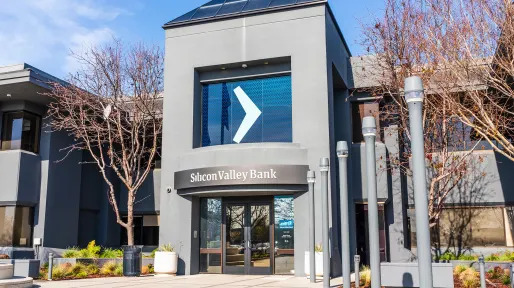 TheStreet.com
TheStreet.comCollapse of Silicon Valley Bank Puts Many Startups in Dire Straits
The bank was the to-go lender for most startups and venture capital firms in Silicon Valley. Its failure is a huge loss for tech.
2d ago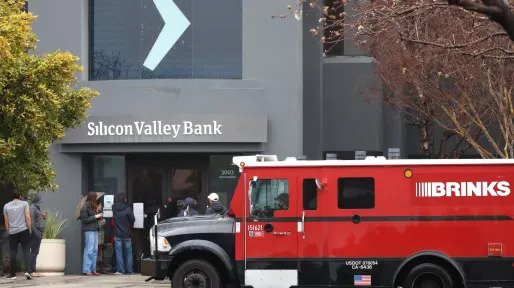 The Telegraph
The TelegraphInside Silicon Valley Bank’s collapse as chief begged tech giants not to panic
When on the brink of a crisis, it is rarely good advice to plead with people not to panic. But that is precisely what Greg Becker did.
1d ago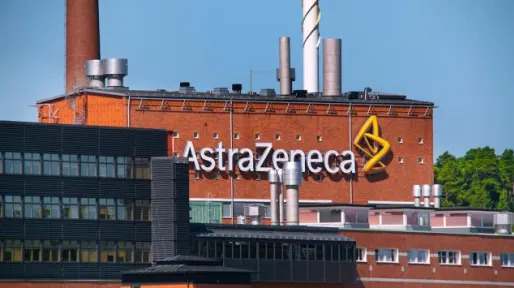 Zacks
ZacksAstraZeneca (AZN) Posts Positive Data From Lung Cancer Studies
Data from late-stage label expansion studies show that AstraZeneca's (AZN) cancer drugs are effective for treating non-small cell lung cancer indications.
2d ago The Telegraph
The TelegraphRevolut backer plunges over Silicon Valley Bank funding fears
Shares in a technology fund that counts the banking app Revolut among its investments have plunged by almost a fifth as panic over the US Silicon Valley Bank spreads to the UK.
2d ago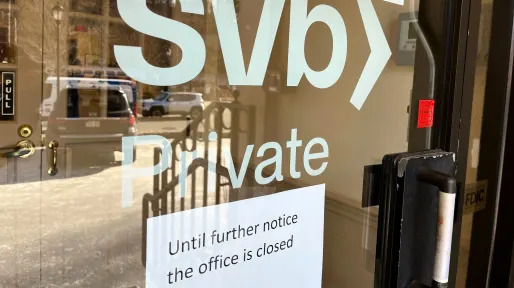 TechCrunch
TechCrunchSilicon Valley Bank collapse is impacting many Indian startups
Over 60 YC-backed Indian startups have more than $250,000 stuck in accounts with Silicon Valley Bank and nearly two dozen have more than $1 million tied with the lender, according to a survey by and among the startups seen by TechCrunch, illustrating how the worst bank failure since the 2008 financial crisis is also impacting firms 8,000 miles away. Dozens of young Indian startups backed by the likes of YC, Accel, Sequoia India, Lightspeed, SoftBank and Bessemer Venture Partners banked with Silicon Valley Bank, sometimes as their only banking partner, and couldn’t take out the money on time on Thursday, multiple people familiar with the situation said. VCs are cautious about divulging the names of the impacted startups out of fear that it might impede the young firms’ prospects of raising capital in the future.
1d ago Benzinga
BenzingaNew York Governor, Attorney General Ask Three Pharmacy Operators' Commitment Over Abortion Drug Access
New York government officials Governor Kathy Hochul and Attorney General Letitia James have sent a letter to CVS Health Corp (NYSE: CVS), Walgreens Boot Alliance Inc (NASDAQ: WBA), and Rite Aid Corp (NYSE: RAD) asking to make abortion medication available in their retail and mail-order pharmacies across New York State. The letter asked the companies to write within ten business days about their commitment to dispense mifepristone at U.S. drug regulator-certified pharmacy locations and via mail i
2d ago Quartz
QuartzIndia has identified a supplier of toxic ingredients linked to cough syrup deaths
The Indian government has made progress in its investigation into the manufacturing of cough syrup products that have caused the deaths of 19 children in Uzbekistan.
2d ago Fox Business
Fox BusinessSilicon Valley Bank collapse: Mark Cuban says Fed should 'immediately' take this action
Mark Cuban raised questions about how regulators had allowed Silicon Valley Bank to end up in such a vulnerable position, and demanded that the Federal Reserve take immediate action.
19h ago TechCrunch
TechCrunchInvestor Mark Suster says a "handful" of bad actors in VC destroyed Silicon Valley Bank
Yesterday at around noon in Los Angeles, investor Mark Suster of the venture firm Upfront Ventures began urging "calm" on Twitter. Silicon Valley Bank had bungled its messaging on Wednesday around an effort to strengthen its balance sheet, and startup founders were beginning to fear that their deposits at the tech-friendly, 40-year-old institution were at risk. "More in the VC community need to speak out publicly to quell the panic about @SVB_Financial," wrote Suster, saying he believed in the bank's health and arguing that the biggest risk to startups, the VCs to whom the bank has long catered, and to SVB itself would be "mass panic."
2d ago TheStreet.com
TheStreet.comFord Suffers Another Setback
This is an announcement that Ford could have done without. The automaker said in early March that it would resume production of its much-watched F-150 Lightning pickup truck, the electric version of the iconic F-150. On Feb. 4, during a standard quality check, one of the F-150 Lightning in a holding lot displayed a battery issue and caught fire while the vehicle was charging.
1d ago MoneyWise
MoneyWiseBill Gates is using these dividend stocks right now to generate a fat inflation-fighting income stream — you might want to do the same for the rest of 2023
Bill Gates looks for income, too. This is how he gets it.
1d ago Investor's Business Daily
Investor's Business DailyWhat To Do As S&P 500 Breaks Final Support; Watch JPMorgan, These Stocks
The S&P 500 broke decisively below key levels. Here's what to do now. It's a big weekend for SVB Financial. Watch JPMorgan and these bank stocks.
18m ago The Wall Street Journal
The Wall Street JournalWall Street Braces for the Next Silicon Valley Bank
Shares of regional banks tumbled amid concerns that Silicon Valley Bank’s collapse is only the beginning.
4h ago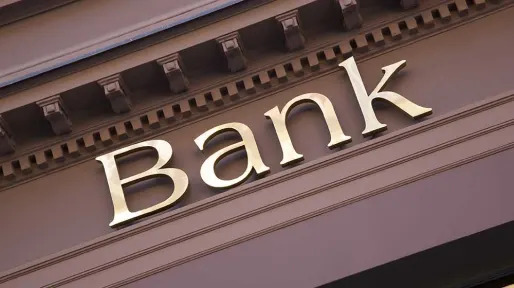 Investor's Business Daily
Investor's Business DailySilicon Valley Bank Panic Crashes 10 Bank Stocks — Is Yours OK?
The halt of trading shares of Silicon Valley Bank is setting off a cascade of selling throughout the financial sector.
2d ago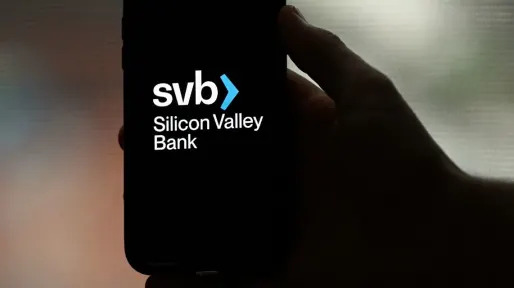 MarketWatch
MarketWatch‘The government has about 48 hours to fix a soon-to-be-irreversible mistake’: Hedge-fund titan Bill Ackman warns some businesses may not be able to meet payroll in wake of SVB’s failure
Silicon Valley Bank had boasted of having relationships with more than half of the venture-backed companies in the U.S.
18h ago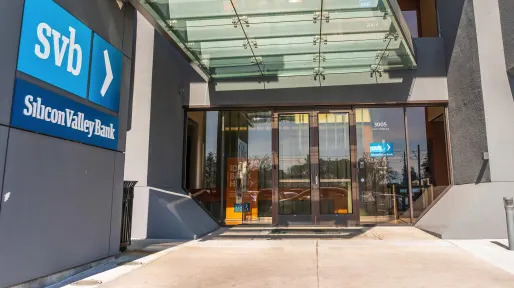 TheStreet.com
TheStreet.comElon Musk May Buy Failed Silicon Valley Bank
Tesla's CEO says he's open to the idea of Twitter acquiring the Californian bank that was shut down on March 10 by regulators.
19h ago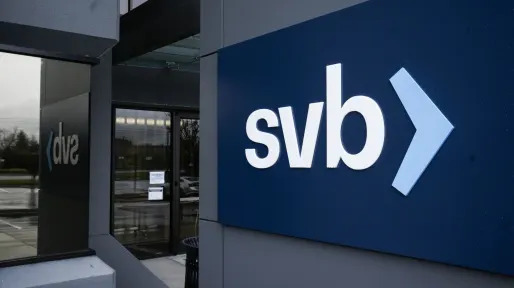 The Telegraph
The TelegraphSilicon Valley Bank collapse could spark the next financial crash – but we cannot bail out failed bankers again
Depositors can't get their money out. Payrolls might not be met next weekend. And small companies, especially in the fast growing technology industries, might soon face closure as their assets are frozen. There will be a lot of nervousness when the financial markets open on Monday morning following the collapse of the Silicon Valley Bank in the United States and the decision by the Bank of England to take control of its London arm.
21h ago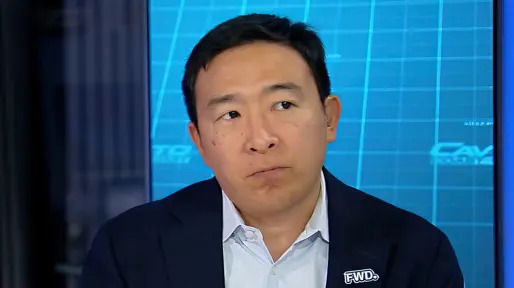 Fox Business
Fox BusinessAndrew Yang warns of 'mass layoffs,' calls for government intervention after Silicon Valley Bank collapse
Andrew Yang, a businessman and Democratic political candidate in multiple races, urged for government action on the collapse of Silicon Valley Bank warning of mass layoffs.
16h ago MoneyWise
MoneyWise'That retirement account has to be bigger’: Suze Orman says avoid these 5 financial blunders if you want to live your best life in retirement
Avoid these money moves so you can retire with peace of mind.
1d ago Fox Business
Fox BusinessBillionaire Bill Ackman on SVB collapse: Government has 48 hours to fix 'irreversible mistake'
Billionaire investor Bill Ackman said that the U.S. government needs to take serious action to prevent the financial ruin of other banks amid the failure of Silicon Valley Bank.
12h ago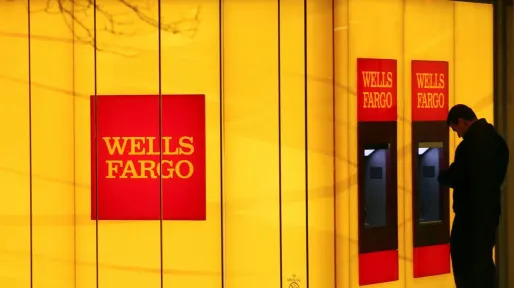 Fox Business
Fox BusinessDirect deposits not showing up in some Wells Fargo customer accounts, here's why
Wells Fargo says that a "technical issue" is responsible for some customers not receiving direct deposit payments causing them to overdraft or see a zero balance.
18h ago Bloomberg
BloombergThiel’s Founders Fund Withdrew Millions From Silicon Valley Bank
(Bloomberg) -- Peter Thiel’s Founders Fund had no money with Silicon Valley Bank as of Thursday morning as the bank descended into chaos, according to a person familiar with the matter.Most Read from BloombergUS Discusses Fund to Backstop Deposits If More Banks FailSVB Fallout Spreads Around World From London to SingaporeStartup Bank Had a Startup Bank RunSVB’s 44-Hour Collapse Was Rooted in Treasury Bets During PandemicFDIC Races to Return Some Uninsured SVB Deposits MondayFounders Fund withdre
2d ago
Recommend
About Joyk
Aggregate valuable and interesting links.
Joyk means Joy of geeK